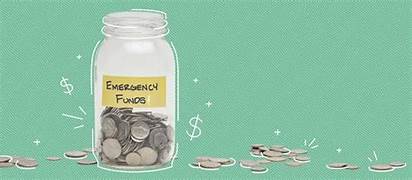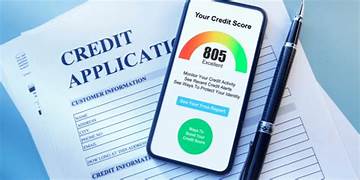Understanding Debt Consolidation and Its Benefits
Managing debt can feel like you’re carrying a heavy weight on your shoulders. The stress of multiple bills, various due dates, and high-interest rates can make it seem impossible to get ahead. If you’ve ever found yourself drowning in credit card bills, loans, and other forms of debt, debt consolidation might be the answer you’ve been looking for. But what exactly is debt consolidation, and how can it help ease your financial burden?
Debt consolidation is the process of combining multiple debts into a single loan with the goal of simplifying repayments and potentially reducing interest rates. Instead of making payments to various creditors each month, you’ll make one payment to a consolidation lender. This can make your financial life much easier to manage while also saving you money in the long run. In this article, we’ll break down everything you need to know about debt consolidation, how it works, and the key benefits it offers.
1. What is Debt Consolidation?
The Basics of Debt Consolidation
Debt consolidation involves taking out a single loan to pay off multiple outstanding debts. Essentially, you’re consolidating all your separate debts into one, making it easier to track your payments and manage your finances. You’ll then make one monthly payment to the new lender, typically with a lower interest rate than your previous debts.
Debt consolidation can be done through various methods, including personal loans, balance transfer credit cards, or even a home equity loan. The idea is to simplify your finances by combining everything into one debt. If done correctly, it can help you save money and reduce financial stress.
Types of Debt Consolidation
There are a few different ways to consolidate your debts:
- Personal Loan: You can take out a personal loan from a bank, credit union, or online lender and use the funds to pay off your existing debts. This is often a good option if you have multiple high-interest debts that you want to consolidate into one lower-interest loan.
- Balance Transfer Credit Cards: Some credit cards offer 0% introductory APR for balance transfers. This means you can transfer your existing debt to the new card and pay it off interest-free for a set period of time, often 12 to 18 months. Be mindful of any transfer fees and the interest rate after the promotional period ends.
- Home Equity Loan: If you own a home, you may be able to use the equity in your home to secure a loan to consolidate your debts. This option often comes with lower interest rates, but it does put your home at risk if you fail to repay the loan.
2. How Does Debt Consolidation Work?
The Process of Consolidating Debt
When you consolidate debt, the process usually works as follows:
- Evaluate Your Debts: First, you need to assess how much debt you owe, the interest rates on your current debts, and your overall financial situation. This will help you determine if debt consolidation is the right option for you.
- Choose a Consolidation Method: Next, decide how you want to consolidate your debt—whether through a personal loan, balance transfer credit card, or home equity loan. Research different options to find the best terms for your situation.
- Apply for the Loan or Credit Card: Once you’ve chosen a method, apply for the loan or credit card. You’ll need to provide information about your income, credit score, and debts. If approved, the lender will provide you with the funds to pay off your existing debts.
- Pay Off Your Debts: After you receive the loan or credit card, use the funds to pay off your existing debts. This will leave you with just one loan or credit card balance to manage.
- Make One Monthly Payment: Going forward, you’ll make one payment to the lender who consolidated your debt. Ideally, the payment should be lower than the combined payments of your previous debts, and you’ll benefit from a lower interest rate.
3. The Benefits of Debt Consolidation
Simplifies Your Payments
One of the biggest advantages of debt consolidation is that it simplifies your finances. Instead of keeping track of multiple bills, due dates, and creditors, you’ll only have to manage one monthly payment. This makes budgeting easier and reduces the chances of missing a payment, which could lead to late fees or damage to your credit score.
Potentially Lowers Your Interest Rates
Consolidating your debt can also lower your interest rates, especially if you have high-interest credit cards or loans. If you’re able to secure a loan with a lower interest rate than your current debts, you’ll save money in the long term. For example, if you consolidate credit card debt with a personal loan that offers a 10% interest rate, compared to the 20% or more interest rates often associated with credit cards, you’ll reduce the amount you pay in interest.
Improves Your Credit Score
Debt consolidation can have a positive impact on your credit score, especially if it helps you lower your credit utilisation rate and pay off existing debts. By consolidating high-interest debts into a more manageable loan, you can focus on paying off the balance and avoid accruing additional fees or interest. Over time, this can improve your credit score as you pay down your debt and avoid missed payments.
Makes Your Debt More Manageable
With just one loan to focus on, you can better plan your budget and set realistic repayment goals. Debt consolidation can help you stay on track with your payments, and knowing exactly when your debt will be paid off can provide peace of mind. It can also reduce the stress of dealing with multiple creditors and constant reminders about missed payments.
Helps You Become Debt-Free Faster
In some cases, consolidating your debt may allow you to pay it off more quickly. If you qualify for a lower interest rate or are able to secure a longer repayment term, you could pay off your debt faster and with less financial strain. This can help you become debt-free sooner, giving you the freedom to focus on other financial goals.
4. When is Debt Consolidation the Right Option?
When You Have Multiple High-Interest Debts
If you have multiple high-interest credit cards or loans, debt consolidation might be a smart choice. By consolidating those debts into one loan with a lower interest rate, you can save money and pay off your debt more quickly.
When You Struggle with Keeping Track of Payments
If you have trouble remembering due dates or keeping track of multiple payments each month, consolidating your debt into one payment can make your financial life easier. It eliminates the confusion of juggling multiple creditors and makes it easier to stay on top of your payments.
When You Have a Steady Income
Debt consolidation is most effective when you have a stable income that allows you to make consistent monthly payments. If you’re unsure about your ability to make the payments or if you’re struggling financially, you may want to explore other options, such as credit counselling or debt settlement, before opting for consolidation.
5. Potential Drawbacks of Debt Consolidation
You May Be Charged Fees
Some debt consolidation loans come with fees, such as balance transfer fees or origination fees for personal loans. These fees can add to your overall debt, so it’s important to factor them into your decision-making process. Always compare the total cost of consolidation, including fees, to your current debts before moving forward.
It Can Be Tempting to Accumulate More Debt
Once you’ve consolidated your debt and cleared your credit cards, you may be tempted to start using them again. This can lead to even more debt and defeat the purpose of consolidation. It’s important to practice financial discipline and avoid accumulating new debt while you’re working to pay off the consolidation loan.
It May Not Solve the Root Cause of Your Debt
Debt consolidation doesn’t address the underlying reasons for your debt, such as poor spending habits or a lack of budgeting. It’s important to also address the root causes of your financial struggles to avoid falling back into debt in the future.
Conclusion
Debt consolidation can be a powerful tool for simplifying your finances and reducing the stress of managing multiple debts. It offers several benefits, including lower interest rates, easier payments, and the potential to improve your credit score. However, it’s essential to weigh the pros and cons and ensure that it’s the right option for your financial situation.
If you’re considering debt consolidation, take the time to research your options, compare different consolidation methods, and ensure that you can comfortably manage the monthly payments. With careful planning and discipline, debt consolidation can help you take control of your finances and work your way towards a debt-free future.
FAQs
1. How do I know if debt consolidation is right for me?
Debt consolidation is ideal if you have multiple high-interest debts and a stable income. It helps simplify payments and may lower interest rates, but you should consider your ability to make the payments before proceeding.
2. Can I consolidate student loans?
Yes, you can consolidate federal student loans into a Direct Consolidation Loan. However, consolidating private loans is typically done through personal loans or other debt consolidation options.
3. What are the risks of debt consolidation?
The main risks include accumulating new debt, paying fees, and potentially extending the repayment period, which could result in paying more interest over time.
4. Will debt consolidation affect my credit score?
Debt consolidation can improve your credit score if it helps you reduce your credit utilisation and stay current on your payments. However, closing old accounts after consolidation may cause a temporary dip in your score.
5. How long does debt consolidation take to work?
The timeline depends on the amount of debt you have, the interest rate on your consolidation loan, and how much you can afford to pay each month. Most consolidation loans last between three to five years.
6. Is it possible to consolidate credit card debt?
Yes, consolidating credit card debt is a common use of debt consolidation. You can do this with a balance transfer credit card, personal loan, or a home equity loan.
7. Can I consolidate all my debts into one loan?
Yes, most debts can be consolidated into one loan, including credit card debt, personal loans, medical bills, and some types of student loans. However, be sure to check the terms of the loan before consolidating everything.






